Montessori education has gained significant popularity in recent years for its child-centered approach that promotes independent learning, creativity, and holistic development. While Montessori schools are known for their effective methodologies, parents can also incorporate Montessori-inspired activities at home to enhance their child’s learning experiences. In this article, we will explore the world of Montessori-inspired activities and how they can be implemented within the familiar setting of a home environment. Whether you’re a stay-at-home parent or working from home, these activities can provide a valuable foundation for your child’s growth and development.
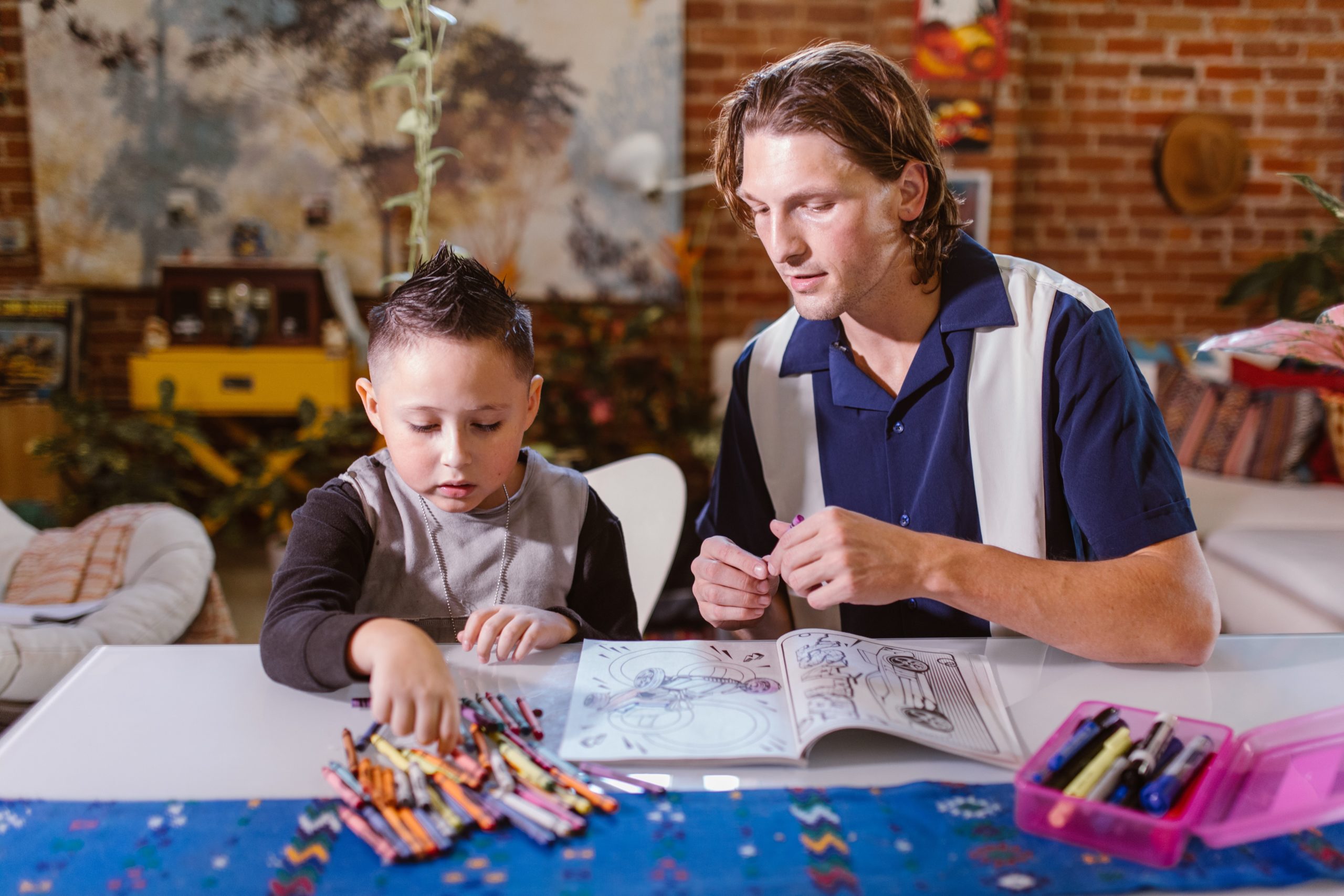
Montessori-inspired activities at home draw inspiration from the educational philosophy developed by Maria Montessori. These activities aim to foster independence, promote cognitive and sensory development, and encourage a love for learning in children. By creating an environment that supports exploration, hands-on experiences, and self-directed learning, parents can help their children develop essential skills and reach their full potential. In this section, we will delve into various Montessori-inspired activities that can be easily implemented within the home setting.
Montessori education is guided by several key principles that focus on the child’s natural development and individual needs. By embracing these principles in Montessori-inspired activities at home, parents can provide an environment that nurtures their child’s innate curiosity and love for learning. Some of the core benefits and principles of Montessori education include fostering independence, promoting hands-on learning experiences, cultivating a sense of order and concentration, and supporting social and emotional development. Throughout this article, we will explore how these principles can be integrated into activities designed for the home environment.
This article will provide a comprehensive guide to crafting Montessori-inspired activities at home, catering to different age groups and areas of development. We will cover a wide range of activities that promote sensory exploration, fine motor skills, language development, mathematical concepts, practical life skills, and more. Each activity will be accompanied by detailed instructions and suggested variations to accommodate children at different stages of development. Whether you’re a seasoned Montessori practitioner or new to the concept, this article will offer valuable insights, expert tips, and creative project ideas to engage your child in meaningful learning experiences.
II. Understanding Montessori Education And Its Principles
A. Definition And Core Principles Of Montessori Education
Montessori education is an educational approach developed by Maria Montessori that emphasizes the natural development of children through a carefully prepared environment and self-directed learning. The core principles of Montessori education revolve around fostering independence, promoting individuality, and supporting the holistic development of each child. By recognizing and respecting the unique abilities, interests, and learning styles of children, Montessori education encourages a lifelong love for learning and exploration.
B. Exploring The Importance Of Child-Led Learning And Independence
One of the fundamental aspects of Montessori education is the belief in child-led learning. This approach recognizes that children have an innate drive to learn and discover the world around them. By allowing children to choose their own activities and follow their interests, Montessori education empowers them to take ownership of their learning journey. This process not only encourages a sense of responsibility and self-motivation but also nurtures a child’s natural curiosity and love for learning.
Independence is another vital aspect of Montessori education. By providing children with the freedom to make choices and engage in self-directed activities, they develop essential life skills, such as problem-solving, decision-making, and self-regulation. Montessori-inspired activities at home can be designed to promote independence by offering age-appropriate tasks that allow children to take care of themselves, their environment, and others.
C. Emphasizing The Role Of Hands-On Activities And Sensory Experiences
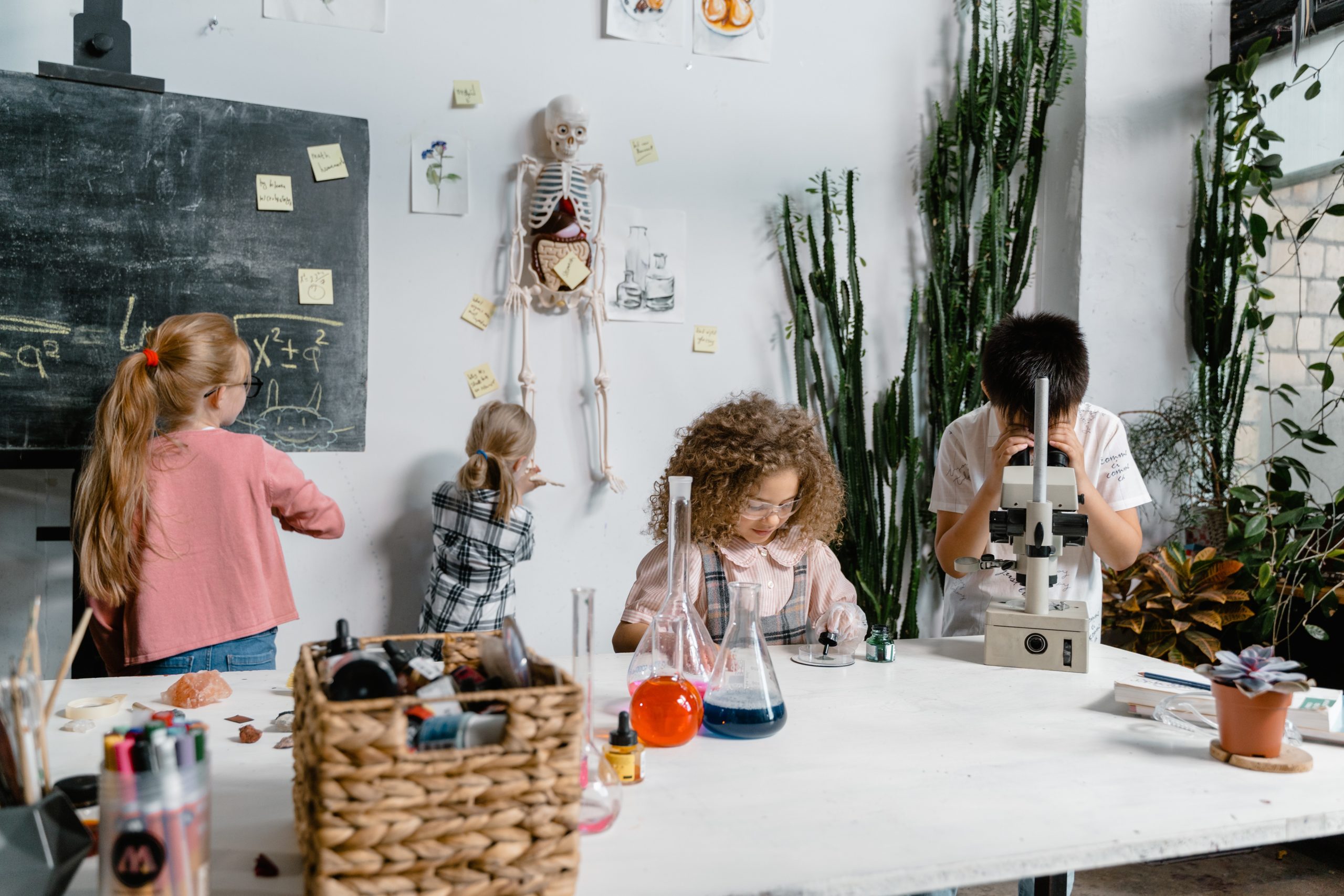
Montessori education places great importance on hands-on activities and sensory experiences as key components of learning. Children learn best when they engage their senses and actively explore their environment. Montessori-inspired activities often involve materials and experiences that stimulate the senses, such as textures, colors, scents, and sounds. By incorporating hands-on activities, children develop their fine motor skills, hand-eye coordination, and cognitive abilities in a meaningful and enjoyable way.
D. Incorporating Freedom Within Limits And Creating A Prepared Environment
Montessori education embraces the concept of freedom within limits. While children are encouraged to make choices and explore their interests, there are also guidelines and boundaries in place to ensure a safe and respectful learning environment. The prepared environment plays a crucial role in supporting this balance. In a Montessori-inspired home environment, parents can create designated spaces and provide appropriate materials that align with their child’s age and developmental stage. By carefully organizing and presenting materials, children can easily access and engage with activities that promote their learning and independence.
Understanding the core principles of Montessori education allows parents to create an environment that encourages their child’s natural development and love for learning. By embracing child-led learning, fostering independence, providing hands-on activities, and creating a prepared environment, parents can effectively implement Montessori-inspired activities at home and support their child’s growth in a nurturing and enriching way.
III. Montessori-Inspired Activities For Infants And Toddlers
A. Introduction to Montessori-Inspired Activities for the Youngest Learners
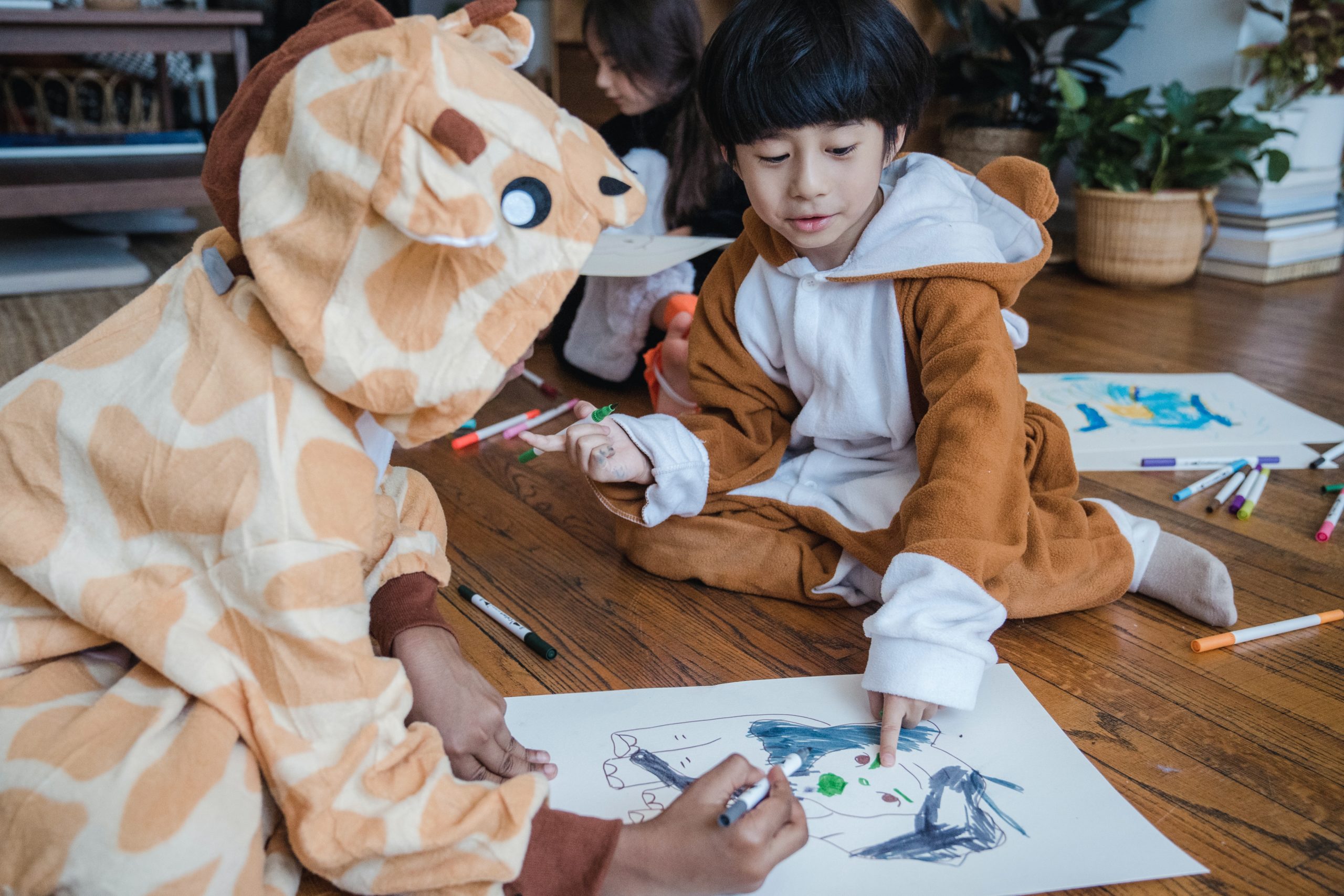
Montessori-inspired activities can begin at the earliest stages of a child’s life, fostering their development and creating a strong foundation for future learning. Even infants and toddlers can benefit from engaging, hands-on experiences that stimulate their senses and support their growing curiosity. In this section, we will explore Montessori-inspired activities specifically designed for infants and toddlers, offering parents practical ideas to nurture their child’s development during these crucial early years.
B. Creating a Cozy and Engaging Environment for Infants and Toddlers
When crafting a Montessori-inspired environment for infants and toddlers, it is essential to prioritize comfort, safety, and opportunities for exploration. Soft mats, low shelves, and child-sized furniture can create a cozy and accessible space for young children. Incorporating elements from nature, such as plants or natural materials, can further enhance their connection with the environment. By organizing materials and toys on open shelves, parents can encourage independent exploration and allow children to choose activities that capture their interest.
C. Exploring Sensory Play, Object Permanence, and Cause-and-Effect Activities
Sensory play is a cornerstone of Montessori-inspired activities for infants and toddlers. It engages their senses, promotes cognitive development, and encourages exploration. Activities such as filling and emptying containers with different materials, playing with textured objects, or exploring water play can provide valuable sensory experiences.
Introducing object permanence activities, such as nesting cups or hide-and-seek games with toys, helps develop the understanding that objects exist even when out of sight. These activities stimulate cognitive growth and strengthen memory and problem-solving skills.
Cause-and-effect activities, such as dropping objects into containers with different sounds or pushing a toy to make it move, foster an understanding of cause and effect. These experiences develop fine motor skills, hand-eye coordination, and the ability to make connections between actions and outcomes.
D. Encouraging Gross and Fine Motor Skill Development through Play
Physical movement and play are crucial for the development of gross and fine motor skills in infants and toddlers. Montessori-inspired activities can promote these skills through engaging and purposeful play. For gross motor skill development, activities such as crawling through tunnels, rolling and catching balls, or climbing on soft structures offer opportunities for exploration and movement.
Fine motor skill development can be supported through activities that involve grasping, stacking, and manipulating objects. Providing child-sized objects, such as stacking rings or simple puzzles, allows infants and toddlers to practice hand-eye coordination, finger dexterity, and concentration.
By incorporating Montessori-inspired activities that focus on sensory play, object permanence, cause-and-effect, and motor skill development, parents can create an enriching environment for their infants and toddlers. These activities lay the groundwork for future learning and support the overall growth and development of the youngest learners.
IV. Montessori-Inspired Activities for Preschoolers and Early Elementary
A. Montessori-Based Techniques for Fostering Independence and Self-Discipline
Montessori education places a strong emphasis on fostering independence and self-discipline in children. These skills are crucial for their overall development and future success. Montessori-inspired activities for preschoolers and early elementary children can focus on encouraging independence in various aspects of daily life, such as dressing themselves, preparing their snacks, or tidying up their play area. By providing opportunities for children to take responsibility for their own actions and contribute to the household, parents can nurture their sense of independence and self-discipline.
B. Promoting Practical Life Skills Through Everyday Activities
Practical life skills are a core component of Montessori education. These skills encompass everyday tasks that children can participate in and master, contributing to their overall development and self-confidence. Montessori-inspired activities for this age group can include practical tasks such as pouring and transferring liquids, washing dishes or vegetables, or folding clothes. These activities not only promote fine motor skills and hand-eye coordination but also instill a sense of responsibility, order, and care for the environment.
C. Incorporating Math, Language, and Cultural Activities in a Hands-On Manner
Montessori education integrates math, language, and cultural activities into the curriculum in a hands-on and engaging way. Parents can adopt these principles when creating Montessori-inspired activities at home. For math, activities can include counting and sorting objects, introducing basic mathematical operations through manipulatives, or exploring shapes and patterns. Language activities can involve storytelling, phonetic games, or creating word cards for vocabulary development. Cultural activities can encompass exploring different cultures, geography, art, music, and nature through hands-on projects and experiences.
D. Encouraging Creativity, Problem-Solving, and Critical Thinking
Montessori-inspired activities for preschoolers and early elementary children provide ample opportunities for creativity, problem-solving, and critical thinking. Parents can encourage creativity by providing open-ended materials such as art supplies, loose parts, or building blocks, allowing children to express themselves and explore their imagination. Problem-solving and critical thinking can be nurtured through puzzles, brain teasers, or challenging tasks that require children to think logically and find solutions independently. These activities stimulate cognitive development, enhance problem-solving skills, and foster a growth mindset.
By incorporating Montessori-inspired activities that focus on fostering independence, promoting practical life skills, integrating math, language, and cultural activities, and encouraging creativity, problem-solving, and critical thinking, parents can provide a well-rounded and enriching learning experience for preschoolers and early elementary children. These activities align with the principles of Montessori education, fostering a love for learning, independence, and holistic development in children.
V. Designing a Montessori-Inspired Learning Environment at Home
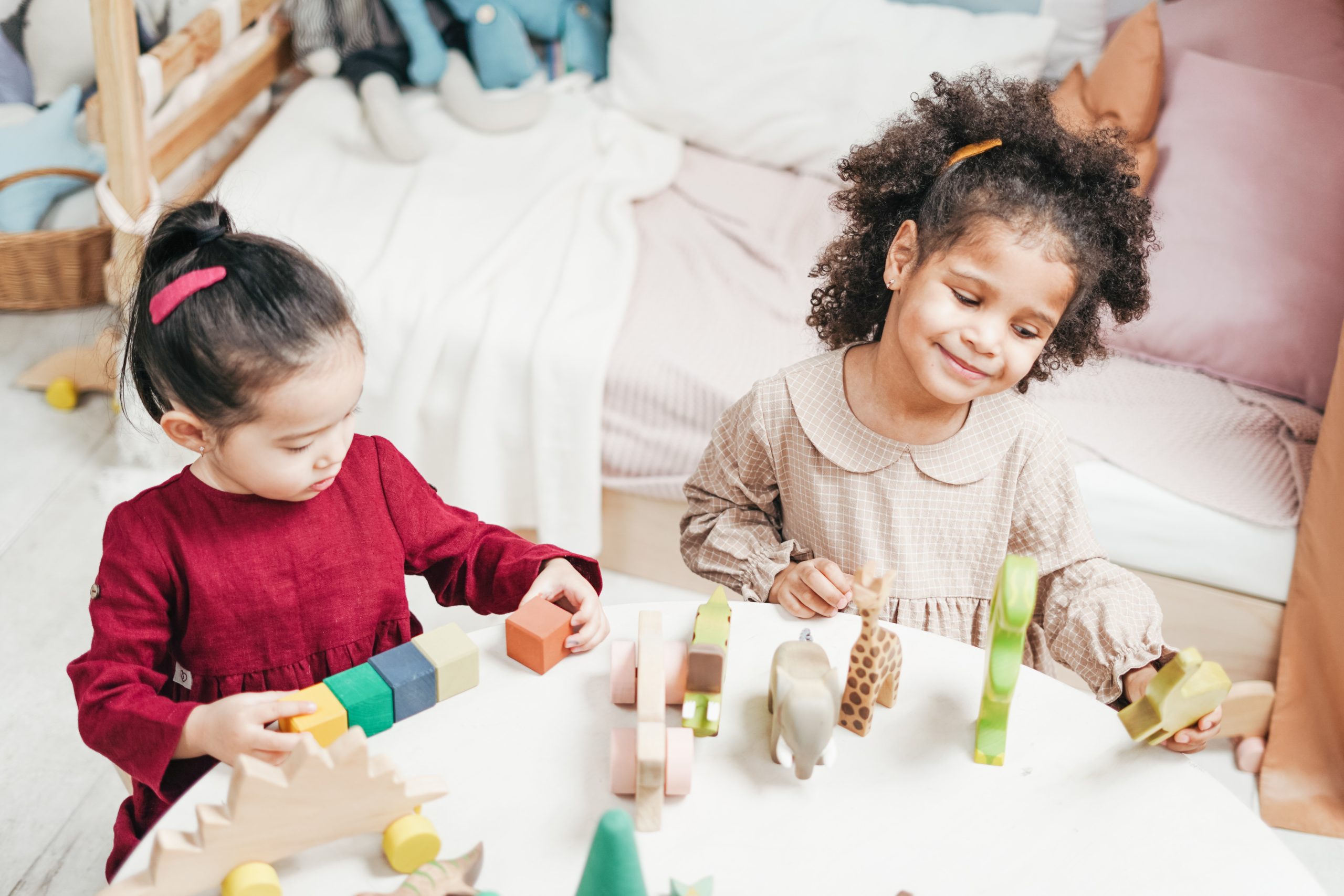
A. Creating a Prepared Environment That Supports Independent Exploration
A key aspect of Montessori education is the creation of a prepared environment that promotes independent exploration and learning. When designing a Montessori-inspired learning environment at home, it’s essential to consider the layout and organization of the space. Arrange furniture and materials in a way that encourages movement, provides clear pathways, and allows for easy access to various learning areas. Create designated spaces for different activities, such as a reading nook, art corner, or practical life area. By setting up a prepared environment, parents can empower their children to freely explore, make choices, and engage in independent learning experiences.
B. Organizing Materials and Resources for Easy Access and Autonomy
In a Montessori-inspired learning environment, organizing materials and resources in a thoughtful manner is crucial to promote autonomy and encourage self-directed learning. Utilize open shelves or low drawers to store materials, ensuring they are easily visible and accessible to children. Arrange materials in an orderly and aesthetically pleasing manner, grouping them by category or subject. Clearly label containers and shelves to facilitate independent retrieval and encourage children to clean up after themselves. By organizing materials in this way, parents can foster a sense of order, promote responsibility, and empower children to take ownership of their learning journey.
C. Incorporating Nature and Outdoor Experiences in Learning Activities
Montessori education emphasizes the importance of connecting with nature and the outdoor environment. Parents can incorporate this principle into their Montessori-inspired learning environment at home by integrating nature-based activities and experiences. Create a nature table or corner where children can explore natural objects such as leaves, rocks, or shells. Set up outdoor exploration stations, such as a gardening area or a sensory nature walk, to engage children’s senses and foster a connection with the natural world. By incorporating nature and outdoor experiences, parents can provide children with valuable opportunities for observation, discovery, and hands-on learning.
D. Personalizing the Learning Space to Reflect the Child’s Interests and Needs
To create a truly engaging and meaningful Montessori-inspired learning environment at home, it’s important to personalize the space to reflect the child’s interests and needs. Take into account their preferences, hobbies, and areas of curiosity when selecting materials, books, and activities. Display their artwork or creations prominently to celebrate their accomplishments. Consider incorporating child-sized furniture, comfortable seating, and cozy elements that make the space inviting and conducive to learning. By personalizing the learning space, parents can foster a sense of ownership, inspire creativity, and create a nurturing environment that supports the child’s unique development.
Designing a Montessori-inspired learning environment at home requires careful thought and consideration. By creating a prepared environment that supports independent exploration, organizing materials for easy access and autonomy, incorporating nature and outdoor experiences, and personalizing the space to reflect the child’s interests and needs, parents can provide an enriching and empowering learning environment that aligns with the principles of Montessori education.
VI. Collaboration and Support: Cozy Time Daycare Techniques
A. Exploring the Benefits of Collaboration Between Parents and Daycare Providers
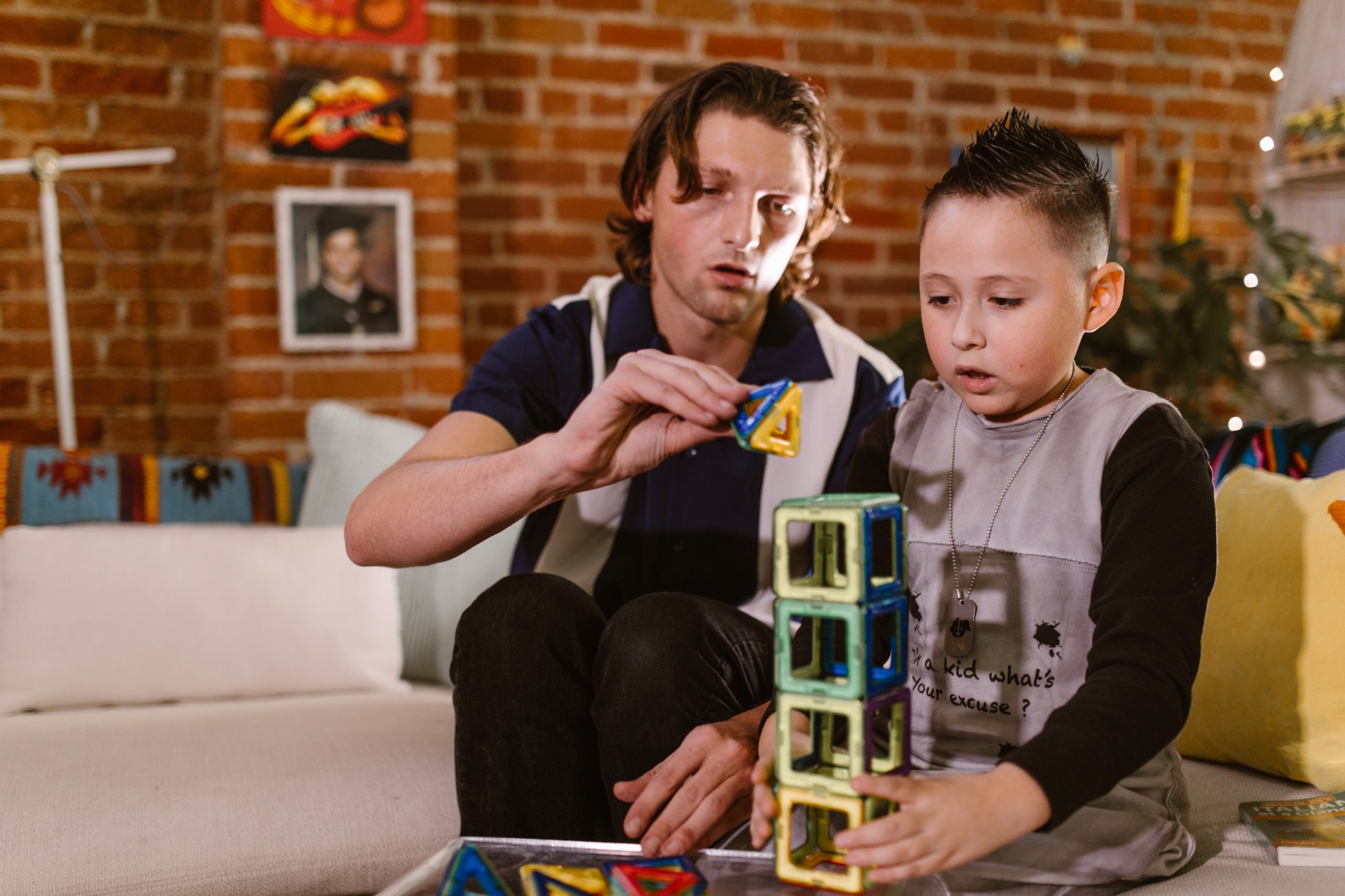
Collaboration between parents and daycare providers can have numerous benefits for a child’s overall development and learning experience. When parents and daycare providers work together, they can create a cohesive and supportive environment that aligns with the child’s needs and values. Collaboration allows for open communication, sharing of insights, and the exchange of ideas. By collaborating, parents and daycare providers can gain a deeper understanding of the child’s progress, interests, and challenges, enabling them to provide consistent support and guidance. This partnership fosters a sense of belonging and security, enhancing the child’s social-emotional well-being and facilitating a seamless transition between home and daycare.
B. Discussing Cozy Time Daycare Techniques and Their Alignment with Montessori Principles
Cozy Time Daycare techniques are rooted in the principles of Montessori education, emphasizing a child-centered approach that promotes independence, hands-on learning, and holistic development. These techniques align with Montessori principles such as fostering independence, providing a prepared environment, and promoting practical life skills. Cozy Time Daycare incorporates Montessori-inspired activities, such as sensory exploration, practical life tasks, and self-directed learning experiences. By incorporating these techniques, daycare providers create an environment that supports the child’s natural development and encourages a love for learning.
C. Sharing Practical Tips and Activities from Cozy Time Daycare for Home Implementation
Cozy Time Daycare techniques can be seamlessly implemented at home to enhance the child’s learning and development. Parents can incorporate practical tips and activities from Cozy Time Daycare into their daily routines. These may include setting up sensory bins or tactile experiences for sensory exploration, introducing practical life activities such as pouring and transferring, or creating language and math-based activities that align with the child’s age and interests. By implementing these activities at home, parents can provide a consistent learning experience that reinforces the child’s development and strengthens the connection between daycare and home.
D. Fostering a Consistent and Holistic Learning Experience for the Child
Collaboration between parents and daycare providers, particularly when using Cozy Time Daycare techniques, fosters a consistent and holistic learning experience for the child. By aligning their approaches and sharing insights, parents and daycare providers can create an environment that supports the child’s development across various domains. Consistency in daily routines, expectations, and approaches to learning enhances the child’s sense of security and understanding. A holistic learning experience that encompasses both home and daycare environments allows for a seamless transition, promotes a well-rounded education, and supports the child’s overall growth and development.
By embracing collaboration and incorporating Cozy Time Daycare techniques at home, parents can establish a strong partnership with daycare providers, creating a consistent and supportive learning environment for their child. This collaboration aligns with Montessori principles, promotes independence and holistic development, and provides practical tips and activities that enhance the child’s learning and well-being.
VII. Montessori-Inspired Projects by Optimistic Mommy
A. Introduction to Optimistic Mommy’s Creative Montessori-Inspired Projects
Optimistic Mommy is a renowned source of creative and engaging Montessori-inspired projects for parents seeking to provide meaningful learning experiences for their children at home. With a passion for hands-on learning and a deep understanding of Montessori principles, Optimistic Mommy offers a wealth of project ideas that align with the child’s developmental needs and foster a love for learning. In this section, we will explore Optimistic Mommy’s innovative approach to Montessori-inspired projects and the benefits they bring to children and parents alike.
B. Showcasing DIY Activities and Materials That Align with Montessori Principles
Optimistic Mommy’s Montessori-inspired projects prioritize the use of DIY activities and materials, aligning with the principles of independence, hands-on learning, and creativity. Through the use of simple and readily available materials, parents can create engaging and meaningful learning experiences for their children. From sensory bins to fine motor skill activities and practical life tasks, Optimistic Mommy showcases a wide range of DIY projects that support the child’s cognitive, physical, and emotional development. These projects empower parents to actively participate in their child’s education and provide them with a solid foundation for future learning.
C. Step-by-Step Guides for Creating Homemade Montessori Materials and Activities
Optimistic Mommy provides step-by-step guides that empower parents to create homemade Montessori materials and activities. These guides offer clear instructions, accompanied by detailed visuals, making it easy for parents to follow along and create the materials themselves. Whether it’s sensory bottles, matching cards, or sorting trays, Optimistic Mommy’s step-by-step guides enable parents to craft materials that are tailored to their child’s specific needs and interests. By engaging in the process of creating these materials, parents can further deepen their understanding of Montessori principles and actively contribute to their child’s learning journey.
D. Inspiring Parents with a Range of Engaging and Budget-Friendly Project Ideas
Optimistic Mommy inspires parents with a diverse range of engaging and budget-friendly project ideas. From science experiments to art activities and nature-based projects, these ideas cater to various interests and age groups. Optimistic Mommy understands the importance of providing project ideas that are accessible and affordable for all families. By offering a multitude of options, parents can choose activities that resonate with their child’s passions and the resources they have available. These project ideas ignite creativity, foster critical thinking, and promote a love for learning, all while keeping in mind the practical considerations of time, cost, and ease of implementation.
Optimistic Mommy’s Montessori-inspired projects empower parents to create enriching and engaging learning experiences for their children at home. Through DIY activities and materials, step-by-step guides, and a range of budget-friendly project ideas, parents can embrace the principles of Montessori education and provide their children with a solid educational foundation. With Optimistic Mommy’s creative inspiration and guidance, parents can embark on an exciting journey of Montessori-inspired projects that foster a love for learning and support their child’s holistic development.
VIII. Real-Life Success Stories: Montessori-Inspired Activities at Home
A. Sharing Success Stories and Testimonials from Parents
Real-life success stories and testimonials from parents who have implemented Montessori-inspired activities at home serve as powerful examples of the positive impact of this approach. These stories highlight the transformative experiences and growth that children have achieved through engaging in Montessori-inspired activities. Parents share their personal journeys, challenges, and triumphs, providing inspiration and motivation for others to incorporate these activities into their own homes. These success stories offer firsthand accounts of the benefits and rewards that come from embracing a Montessori-inspired approach to learning and development.
B. Highlighting the Positive Impact of Montessori-Inspired Activities on Children’s Development
Montessori-inspired activities have a profound positive impact on children’s development across various domains. Success stories from parents showcase the significant progress made by children in areas such as cognitive skills, emotional intelligence, social interactions, and self-confidence. These activities foster a love for learning, enhance problem-solving abilities, promote independence, and nurture a growth mindset. Parents witness their children’s curiosity, creativity, and joy for exploration blossom as they engage in hands-on, child-centered learning experiences. The positive impact of Montessori-inspired activities on children’s development is evident through these real-life success stories.
C. Showcasing the Transformation in the Home Learning Environment and Parent-Child Relationships
Implementing Montessori-inspired activities at home often leads to a transformation in the home learning environment and parent-child relationships. Success stories from parents highlight the shift in the atmosphere, with homes becoming vibrant centers of learning, discovery, and collaboration. Through Montessori-inspired activities, parents and children develop a deeper bond as they engage in meaningful interactions and shared learning experiences. These activities create opportunities for open communication, mutual respect, and a stronger connection between parents and their children. Success stories demonstrate the profound impact that Montessori-inspired activities have on creating a positive and enriching home learning environment.
D. Including Practical Tips and Lessons Learned from Each Real-Life Story
Each real-life success story is accompanied by practical tips and lessons learned, offering guidance and insights for other parents embarking on their Montessori-inspired journey. These tips may include suggestions for creating a prepared environment, incorporating specific activities for different age groups, or adapting activities to suit individual children’s needs. Lessons learned from these stories provide valuable advice on fostering independence, nurturing a love for learning, and overcoming challenges. By sharing practical tips and lessons learned, parents can learn from the experiences of others and make informed decisions when implementing Montessori-inspired activities at home.
Real-life success stories from parents who have embraced Montessori-inspired activities at home provide inspiration, evidence, and guidance for others seeking to incorporate this approach into their own lives. These stories highlight the positive impact on children’s development, the transformation in the home learning environment, and the deepening of parent-child relationships. With practical tips and lessons learned, parents can draw upon the experiences of others to create a nurturing and enriching Montessori-inspired environment at home.
IX. Conclusion
Throughout this article, we have explored the world of Montessori-inspired activities at home, drawing insights from Cozy Time Daycare techniques, Optimistic Mommy’s creative projects, and real-life success stories. We began by understanding the relevance and principles of Montessori education, emphasizing child-led learning, independence, and hands-on experiences. We delved into age-specific activities for infants, toddlers, preschoolers, and early elementary children, focusing on sensory play, practical life skills, language development, and mathematical concepts. We discussed the importance of designing a prepared learning environment and highlighted the benefits of collaboration between parents and daycare providers. We explored DIY projects and concluded by sharing real-life success stories, showcasing the positive impact of Montessori-inspired activities on children’s development.
Implementing Montessori-inspired activities at home offers numerous benefits for children’s development and learning. By embracing child-led learning, promoting independence, and providing hands-on experiences, parents can nurture their child’s natural curiosity, creativity, and love for learning. Montessori-inspired activities foster cognitive, social, emotional, and physical development, enhancing problem-solving skills, self-confidence, and a growth mindset. These activities create a positive and enriching home learning environment, strengthen parent-child relationships, and provide a solid foundation for future academic and life success.
Hey welcome to my blog . I am a modern women who love to share any tips on lifestyle, health, travel. Hope you join me in this journey!

Speak Your Mind